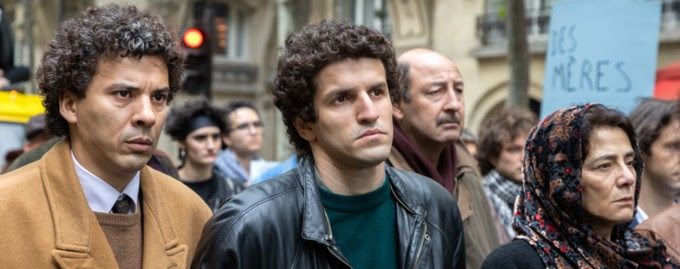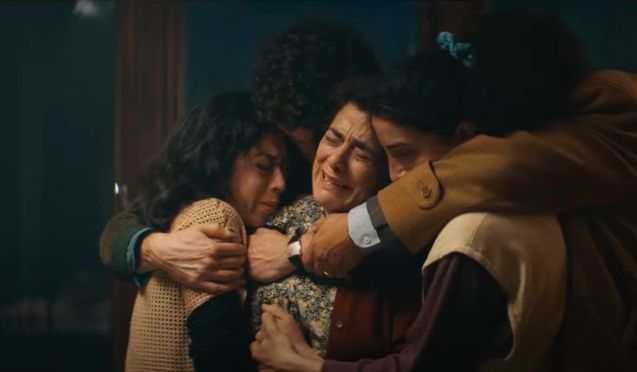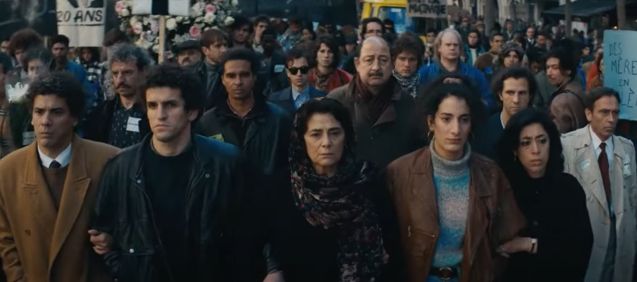Memories of Murder
Whether it’s Netflix or Amazon Prime Video, French productions on SVoD platforms often struggle to get out of the shackles of picky French television. This is why we could be both surprised and worried to see Disney + invest in a mini-series around the racist murder of Malik Oussekinea student of Algerian origin beaten to death by the police as he quietly returned home.
If this tragic event upset the France of Mitterrand, we got used to the cowardly spectacular and tearful fictions on these cases that have become national symbols, whether on TF1, M6 or France Télévisions. We come to wonder why Oussekine did not go through this logical channel, unless it was due to the sensitivity of its subject, unfortunately more topical than ever.
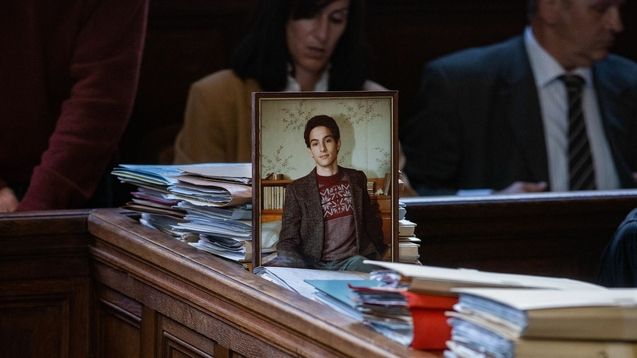
In any case, this supposed reluctance greatly benefits the passage of the creation of Antoine Chevrollier (director of several episodes of Legends Office and of Black Baron) on Mickey’s side, because his ambition is increased tenfold. Beyond the undeniable quality of its reconstruction (supported by skilful photography, all in pastel shades and diffused lights), Oussekine has something almost fluffy, like the somewhat hazy memory of an era fantasized both by the spectator and by its protagonist, convinced of the equality of opportunity promised by an inclusive nation.
Returning from a jazz concert to which the young Malik (Sayyid El Alami) goes with a smile from ear to ear, the soft cloud suddenly becomes fog. That’s the big ideaOussekine : not showing us the tragic death of Malik right away, chased on several streets by police acrobats. The connection is made on his brothers Mohamed and Benamar (Tewfik Jallab and Malek Lamraoui) and his sisters Sarah and Fatna (Mouna Soualem and Naidra Ayadi), who understand the next morning that something is wrong.
Intimate and collective trauma
By this tetanizing off-screen, the series invests a void: that of the unbearable expectation of clear answers. The death is hardly confirmed that it is already necessary to envisage the management of the media and the scale to come of this injustice. Chevrollier and his screenwriters have the intelligence to center their first episode only on this infernal day, where the Oussekine siblings are separated, sent to the four corners of Paris before coming together in a final heartbreaking shot.
In this way, the point of view of the staging carefully avoids just translating a national drama and its political recovery. Of course, the series highlights its necessity, in particular through the support of students, but never forgets its obscene dimension, right down to the calculated « gesture » of a president who has come to offer his condolences by invading the space of life of this family from which one of the sons was torn away.
There is thus a miraculous richness in the four episodes ofOussekine, whose displayed sobriety could be reduced to transcribing the various events of a case spread over four years. On the contrary, the camera never forgets the pain of this familywhich serves as a pivot through a realization that marries with accuracy and modesty their subjectivity.
It is in certain fittings that the series finds its best moments, when these bereaved looks are overwhelmed by the horror of institutionalized racism. One thinks in particular of this chilling call in a telephone booth, which leads to the discovery of a newsstand displaying the defamatory letter of Minute.
Police killers
Malik’s relatives never wanted this affair to reach such a degree of media coverage, but the simple duty of justice finds itself embroiled in spite of itself in a deep questioning of the moral identity of France. But the worst part of it all is that this dizzying momentum is contrasted by the overall structure of the mini-series, which continues to modulate around that of its first episode. Everything is waiting and stagnation, because behind the scenes of a government that is doing everything to put a spoke in the wheels of the courts.
Oussekine therefore works on a series of jolts and flashbacks rather well felt, including with regard to the reconstruction of the murder of Malik. One could fault the series for the slightly stinky suspense it tries to shape around its monstration, but by distilling time in such a way, it makes this clash a kind of ghost, which spreads in and out of episodes. to better reflect its terrible topicality.
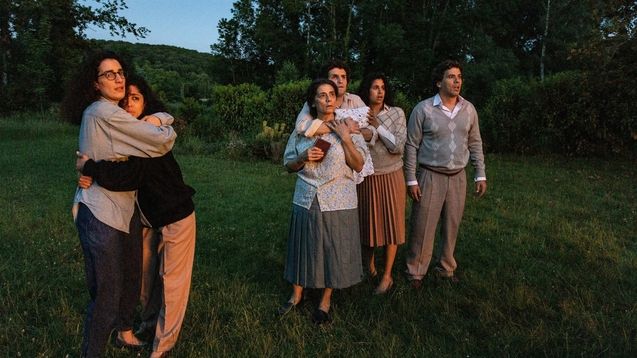
By playing on the dissatisfaction with his conclusion, Antoine Chevrollier throws us back in the face of the way in which the Oussekine case serves more than ever as case law with regard to the treatment of police violence, while the deaths of Rémi Fraisse and ‘Adama Traoré resonate indirectly on his images reproducing the year 1986. The result is a series that knows how to channel his anger and his despair, like his brilliantly embodied characters.
It is also worth highlighting the prestige of a five-star cast, from Kad Merad to Olivier Gourmet via Hiam Abbass, whose performances elevate a demanding staging, especially in a final trial episode that avoids the many pitfalls of the kind. Right down to the home stretch, the Disney+ mini-series is exemplary, and finds the right balance between the duty of memory and the intimate story without ever seeming intrusive. Paradoxically, it is by managing to maintain this distance thatOussekine evokes a France with systemic hypocrisy, where the terms « liberty, equality and fraternity » have for too long been meaningless.
Oussekine is available in full on Disney+ since May 11, 2022

.
